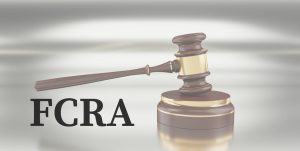Foreign Contribution Regulation Act:

The Union Home Ministry revoked the FCRA licence of the Students Educational and Cultural Movement of Ladakh (SECMOL), founded by climate activist Sonam Wangchuk.
- The Foreign Contribution (Regulation) Act (FCRA) was originally enacted in 1976 during the Emergency to prevent foreign influence on India’s internal affairs through financial contributions.
- The FCRA, 2010, currently in force, regulates the acceptance and utilisation of foreign funds by individuals, associations, and companies in India.
- Its primary objective is to ensure that foreign donations do not compromise national sovereignty, integrity, or internal security, and are used only for legitimate developmental purposes.
- Amendments to FCRA:
- FCRA (Amendment), 2010
- Consolidated the 1976 law.
- Expanded coverage to associations, NGOs, and companies.
- Strengthened the regulatory framework.
- FCRA (Amendment), 2020 Key Changes
- Ban on Transfers: Prohibits NGOs from transferring foreign contributions to other NGOs or individuals.
- Mandatory Aadhaar: All office bearers must provide Aadhaar/passport/OCI details for registration.
- FCRA Account: All contributions must be received only in the designated SBI branch, New Delhi.
- Reduced Administrative Expenses: Limit cut from 50% to 20% of foreign funds.
- Renewal of Licence: Renewal contingent on government scrutiny for fictitious entities or misuse.
- Suspension Extension: Suspension of registration can last up to 360 days.
- Surrender Provision: Organisations can voluntarily surrender their FCRA licence, subject to approval.
- Bar on Public Servants: Public servants are prohibited from receiving foreign contributions.
- FCRA Rules (Amendment), 2022
- Increased the annual limit for foreign remittances from relatives abroad from ₹1 lakh to ₹10 lakh without prior intimation.
- Simplified compliance for smaller transactions but reinforced safeguards against foreign funds that may threaten national interests.
- FCRA (Amendment), 2010




